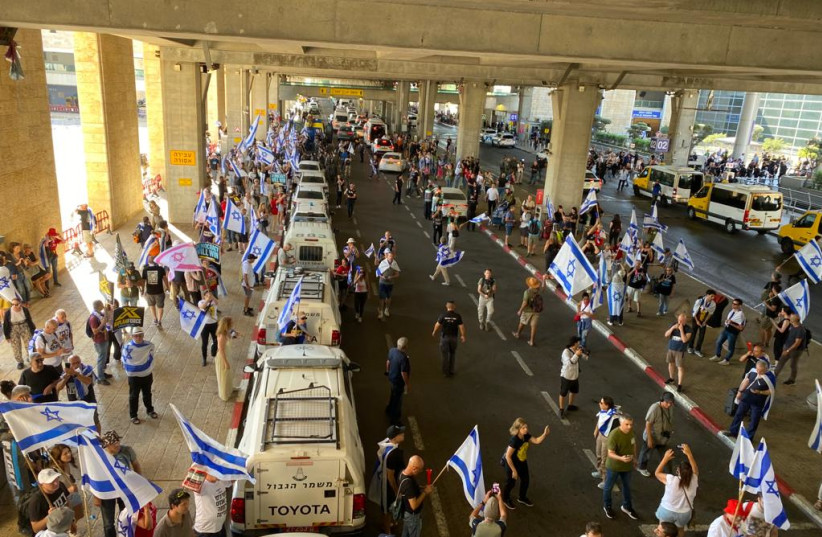Israel has been buffeted by two tumultuous events on Monday, the commencement of the largest military operation in Jenin since the Second Intifada, and political unrest in response to the resumption of judicial reform legislation.
While these events aren't evidently related, issues are often politicized to support agendas and narratives. Both the anti-reform and reformist political camps used the operation in their judicial reform arguments on Monday and Tuesday, as tensions and protests spiked. In particular, the Jenin operation was seen as a reason for politicians to call for the cessation of their opponents' political endeavors.
In the Knesset Constitution, Law and Justice Committee where a bill on the reasonableness standard was being prepared and on social media, opposition members called for a delay in the legislation until the end of the operation.
"Knesset member [Simcha] Rothman, when there is a large-scale military operation -- we do not continue with legislation that tears the nation apart," Labor MK Gilad Kariv wrote on Twitter on Monday morning. "Please, announce that you are canceling the reasonableness standards hearings as long as the operation in Jenin continues."
Opposition members argued that the nation needed to have a united front against terrorism and support the IDF's soldiers, which it could not properly do if it was distracted by such controversial legislation. Inversely, some said that it wasn't possible to concentrate on such important debates when the state faced such a security challenge. On Tuesday it was also contended that the coalition was undermining the legal system legitimacy that protected IDF soldiers from interventions by the International Criminal Court, which jeopardized troops in Jenin.

Rothman, the Law Committee chairman, argued mixing the issue of the Jenin operation with that of the judicial reform bill, saying that it was inappropriate. He described the opposition as using the matter as a form of filibuster against the bill.
Coalition members, such as Likud MK Tally Gotliv, cited the situation in Jenin as a reason why they should not hold a massive protest at Ben Gurion Airport on Monday night. While the police didn't explicitly mention Jenin, Police Chief Kobi Shabtai warned about blocking access to gates in light of the security climate, and police commander Avi Biton made general appeals about keeping security lanes open -- though Biton's point was originally made in the context of an emergency plane landing on Sunday night.
A mirror between the protest and the operation
Protest groups presented their protests as being a mirror of the operation in Jenin, in the same way, that the IDF soldiers were protecting the state from without, they were defending the state from within.
Hadash-Ta'al response to the twin events was the reverse of the other factions, using the judicial reform to attack the decision to launch an operation in Jenin. At the Law Committee session on Tuesday, Ta'al MK Ahmad Tibi said that those that rallied against the dictatorship in Tel Aviv could not allow "dictatorial" attacks against Palestinians in Jenin.
What was not brought into question by the mainstream opposition and coalition was the necessity of the operation. There was little in the way of accusations that the operation was launched to distract from the coalition's judicial reform efforts. Jenin has recently spawned several terrorist cells and lone-wolf terrorists that have murdered Israeli civilians, and the need to stop these attacks has not been challenged.
All is fair in love and war, but in Israeli politics, while most are willing to use security issues to further political aims, it seems the need for security action to protect citizens is still sacred.
